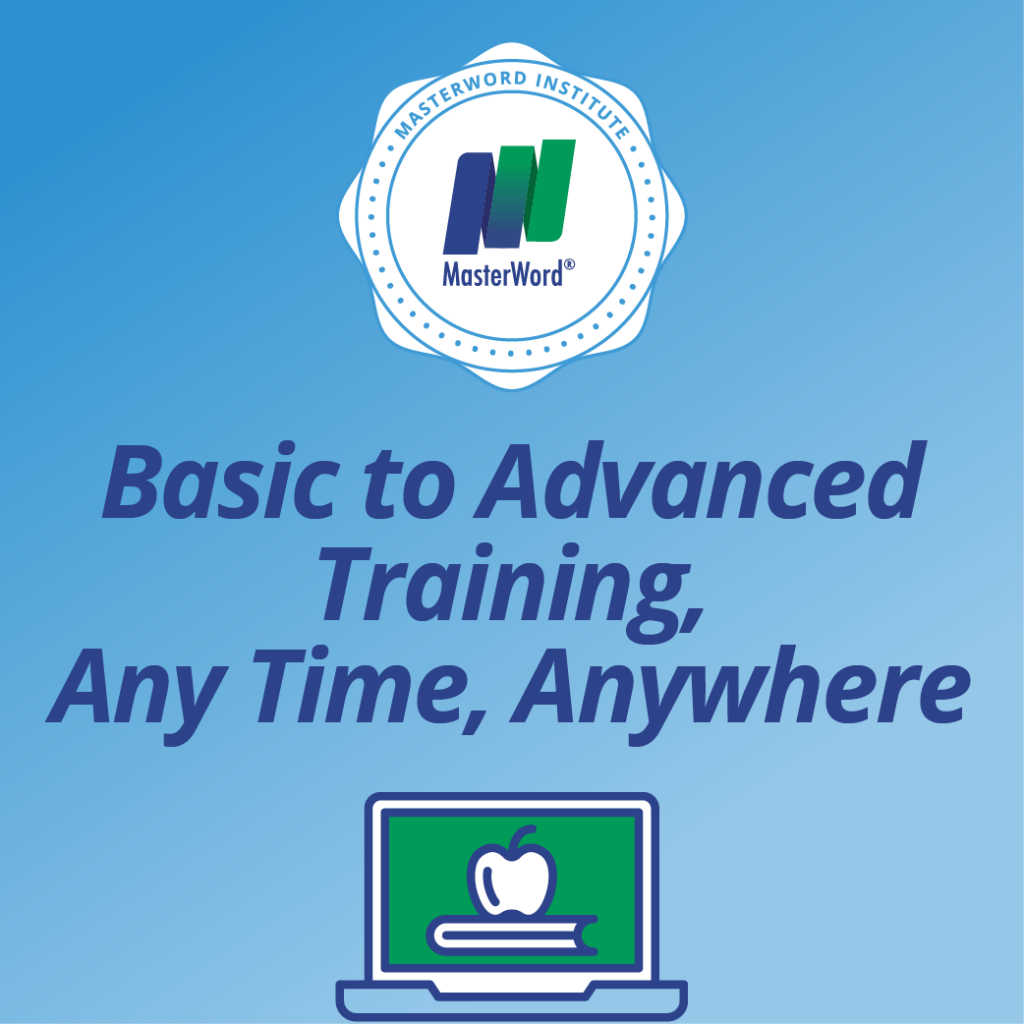This website uses cookies to store information on your computer to ensure you get the best experience using our website. By using the site, you consent to the placement of these cookies. Learn more.
Agree and dismissAccepted CE Topics
CCHI accepts CE topics that are beyond-beginner level of complexity AND address the essential body of knowledge that serves as the context for the healthcare interpreting profession and align with one or more of the knowledge, skills and abilities needed for competent performance of the job of the healthcare interpreter.
By “continuing education (CE),” we mean learning in an instructor-led environment, including online self-paced modules. The following activities are not accepted as CE by CCHI:
- actual interpreting or translating (i.e., performing your job),
- preparing for an assignment (any research or self-study that an interpreter would do to be ready to interpret in a new setting or on a new subject matter),
- self-study.
The continuing education requirement is 32 actual hours (classroom or contact) during the four-year period for which the individual’s certification is valid. To ensure that certificants pursue continuing education in a consistent manner and with the goal to maintain or improve their job performance, the following conditions must be met regarding these 32 CE hours:
- The 28 CE hours can be in any topic relevant to healthcare interpreting.
- A minimum of four (4) CE hours must be in performance based training which is defined as training aimed to improve the healthcare interpreter’s skills in the three interpreting modes – consecutive, simultaneous and sight translation, and translation. See the corresponding section below for more information.
- A maximum of eight (8) CE hours may be in qualified topics related to written translation. Keep in mind, translation training may be performance based or not.
- Out of the 32 CE hours of the four-year cycle, a maximum of 8 CE hours may be earned as non-instructional CE activities. (These hours are optional, not required.) Non-instructional CE activities are defined as “activities that support the healthcare interpreting profession through volunteerism, leadership and research.” See the corresponding section below for more information.
- The minimum duration of a CE activity is 30 minutes for general topics and 60 minutes for performance-based topics. Courses of lesser duration are not accepted by CCHI.
CCHI defines performance based (PB) training as training aimed to improve the healthcare interpreter’s skills in the three interpreting modes – consecutive, simultaneous and sight translation, and translation. PB courses must include instructor-led (feedback-offered) practice in those modes of interpreting or translation (in-person or online). Ethics, cultural awareness, or terminology-only courses or small-group activities that do not include actual practice of interpreting/translation are not considered PB in this context.
CCHI acknowledges that interpreting skills require continuous practice to be maintained at an adequate level. Therefore, each certificant is required to obtain a minimum of 4 (four) CE hours in any performance based (skill-building) training every four years.
Performance Based Training:
- Minimum required – 4 CE hours within the four-year renewal cycle, in any combination in the following areas of the interpreter competencies:
- Perform consecutive interpreting
- Perform simultaneous interpreting
- Sight translate healthcare documents
- Related skills-development training (e.g. note-taking, short-term memory development, public speaking, critical thinking)
- Maximum allowed – 8 (eight) CE hours in a four-year cycle, in the following competency (updated as of 04/12/2022):
- Translate healthcare documents (training in any written translation topics related to health care, medicine, legal and auto insurance matters related to healthcare provision, medical malpractice/health insurance; training in other translation topics is not accepted)
The following topics (the headings are the domains titles on the certification exams) are suggestions of educational opportunities that are applicable toward continuing education. Any subjects that do not fall into the recommended categories below will need to be evaluated by CCHI to determine relevancy for continued professionalism and growth for a certified healthcare interpreter.
CCHI is unable to answer questions about specific training activities before you submit your renewal application. We encourage you to submit your application as soon as you are ready, and we will correspond with you about your activities after your renewal application is submitted.
-
Professional Responsibility and Interpreter Ethics
- The healthcare interpreter profession: New developments, innovations, current issues
- Healthcare Interpreter Code of Ethics and Standards of Practice (controversial issues, ethical dilemmas)
- Patient advocacy
- Healthcare interpreter’s role and role boundaries: recognizing situations when to decline an assignment
- Ethical decision-making (including, appropriate protocols, interpreting modes in complex situations, HIPAA and patient safety issues)
- Communication elements, e.g. public speaking, interviewing techniques, mediation, conflict de-escalation/resolution, communication in sensitive interpersonal situations, assertive communication techniques, active listening skills, etc.
- Critical thinking
- Safety protocols, personal protective gear, and universal precautions in health care
- Laws and regulations pertaining to healthcare interpreting and health care: updates, current issues
- Creating effective professional improvement and development plans for healthcare interpreter
- Interpreter self-care (secondary traumatization, etc.)
-
Manage the Interpreting Encounter
- Healthcare Interpreter Standards of Practice (interventions, transparency, asking for clarifications, pauses, and repetitions)
- Manage unfamiliar terms and concepts
- Ethical decision-making (including, appropriate protocols, interpreting modes in complex situations, HIPAA and patient safety issues)
- Communication elements, e.g. public speaking, interviewing techniques, mediation, conflict deescalation/resolution, communication in sensitive interpersonal situations, assertive communication techniques, active listening skills, etc.
- Critical thinking
- Identifying the most effective interpreting modality for a given healthcare encounter
- Working effectively with an interpreter
- Methods of researching new terminology and finding appropriate equivalents in a target language
- Memory skills development
- Note-taking techniques
-
Healthcare Terminology
- Intermediate healthcare terminology in both working languages
- Advanced healthcare terminology in both working languages
- Any healthcare specialty presentation (presentations by healthcare specialists for healthcare or allied professionals which give interpreters the background information and English terminology, e.g. new surgical procedure)
- Establishing Equivalency
- Terminology Research methods
-
U. S. Healthcare System
- U.S. healthcare delivery systems
- U.S. healthcare culture and principles of Western biomedicine
- Public health and its implications on populations
- Federal and state legislation and regulations pertaining to language and healthcare access
- Applicable legislation and regulations regarding the role of interpreters as mandated reporters
- Latest developments in the U.S. health and healthcare system
- Relevant organizational structure (specialties) and protocols (e.g. Emergency Department protocols)
- Roles and responsibilities of healthcare providers and staff
- Social determinants of health and special populations needs
- Relevance of disparities that prevent access to health care
- Comparison of the U.S. system with another country
- Healthcare insurance plans
- Medical and ethical decision-making
- Medical team education and communication
-
Cultural Responsiveness
- Cultural brokering and mediation
- Cross-cultural communication skills
- Health beliefs and practices of specific populations with a non-English native language
- U.S. healthcare culture and principles of Western biomedicine
- Spirituality (in the context of health and health care)
- Culture-specific communication étiquette (interpersonal, public vs. private, etc.)
- Cultural barriers to accessing health care
- Various intervention strategies
-
Interpret Consecutively (PB)
- Consecutive interpreting skill-building with a specific healthcare specialty focus (e.g. interpreting in Labor and Delivery, during a gastroenterology consult, at a dental appointment, etc.)
- Language-specific skill-building in consecutive interpreting
- Consecutive interpreting skill-building in other settings (administrative hearings, court interpreting, conference interpreting)
- Voice training
-
Interpret Simultaneously (PB)
- Simultaneous interpreting skill-building with a specific healthcare specialty focus (e.g. interpreting in Emergency Department, during a mental health appointment, etc.)
- Language-specific skill-building in simultaneous interpreting
- Simultaneous interpreting skill-building in other settings (administrative hearings, court interpreting, conference interpreting)
- Voice training
-
Sight Translate/Translate (Written) Healthcare Documents (PB)
- Sight Translation skill-building with a specific healthcare specialty focus (e.g. patient education documents related to women’s health, etc.)
- Sight Translation skill-building with a specific type of document focus (e.g. medical history forms; quasi-legal documents in health care – releases, waivers; grammatical peculiarities of healthcare documents, etc.)
- Language-specific skill-building in sight translation
- Sight Translation interpreting skill-building in other settings (administrative hearings or court interpreting)
- Written Translation skill-building, limited to healthcare, medical, legal, and healthcare/auto insurance subject areas (only 8 hours are accepted; updated on 04/12/2022)
-
Demonstrate Near-native Language Proficiency in Working Languages
- Regionalisms
- Idiomatic expressions
- Different register
- Slang
- Language-specific grammar topics
- Accent reduction (PB)




